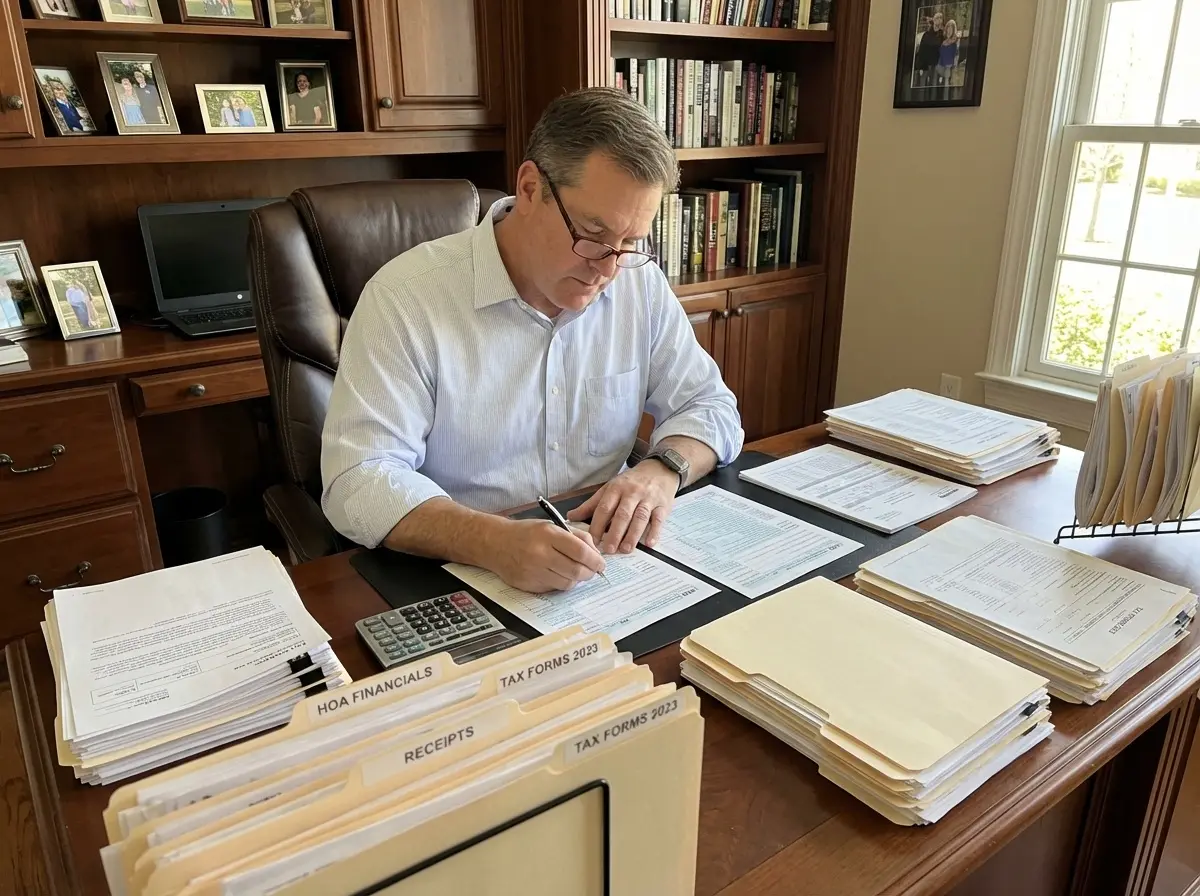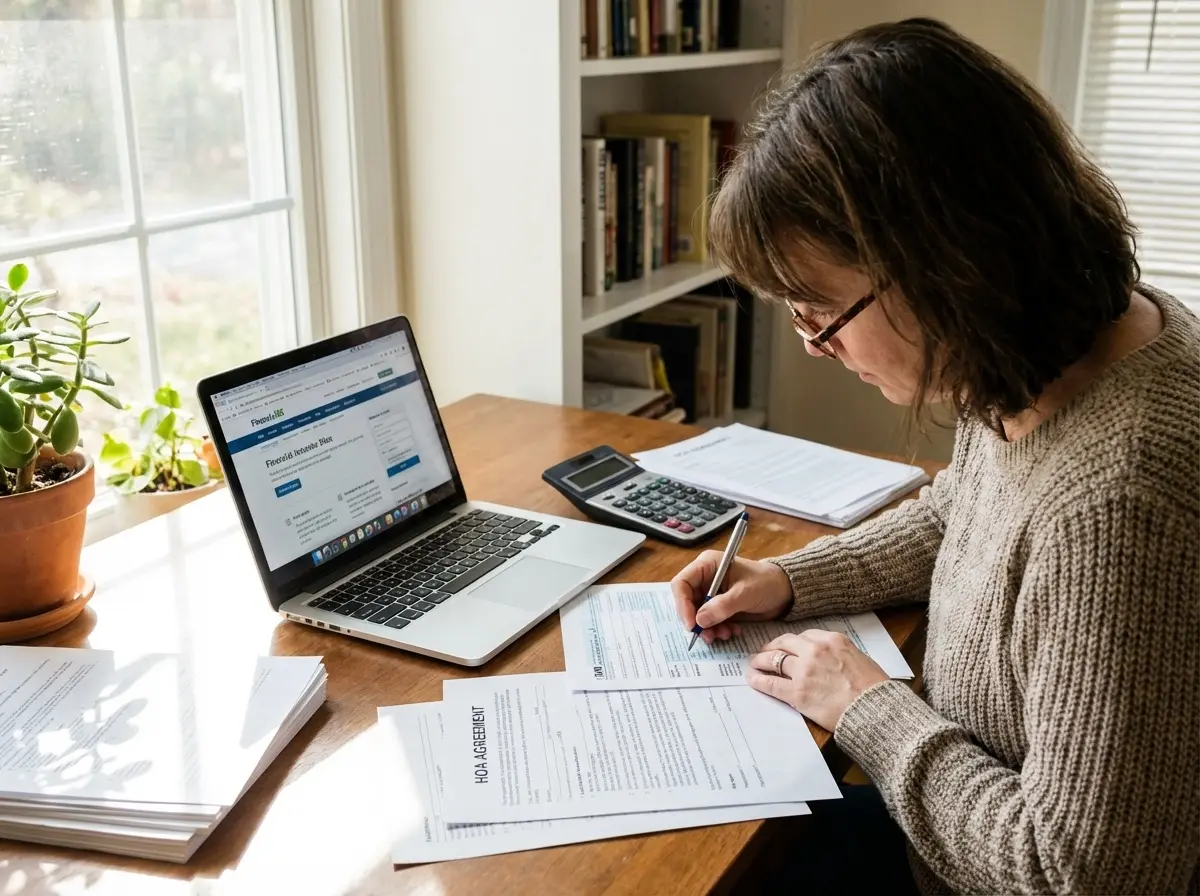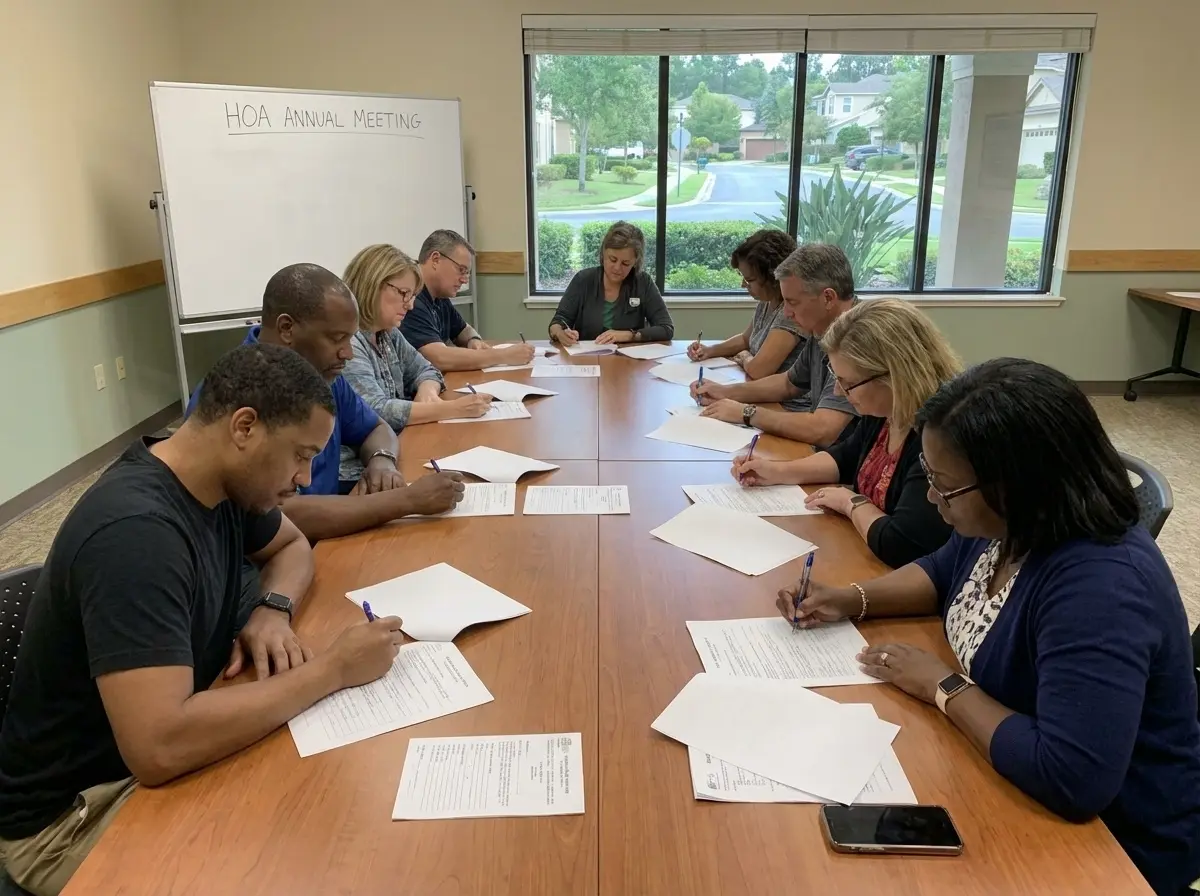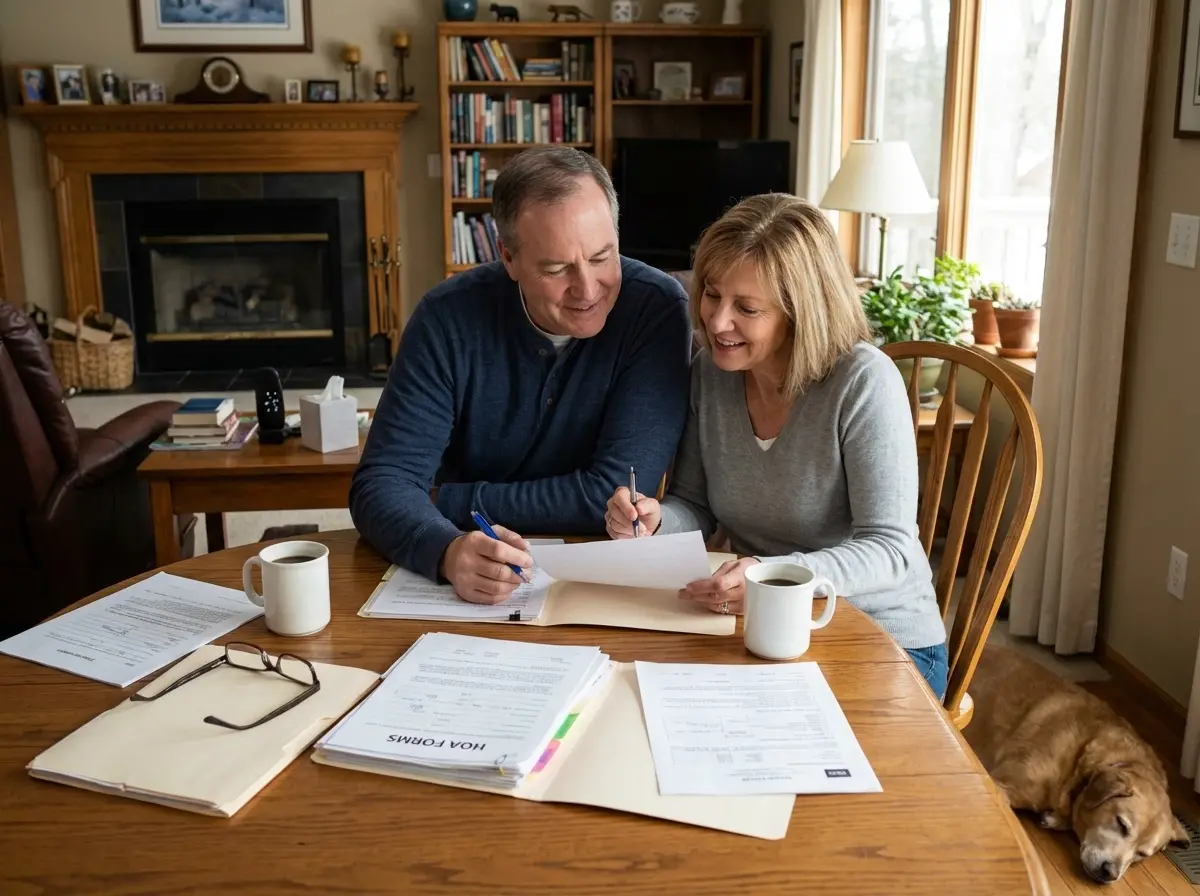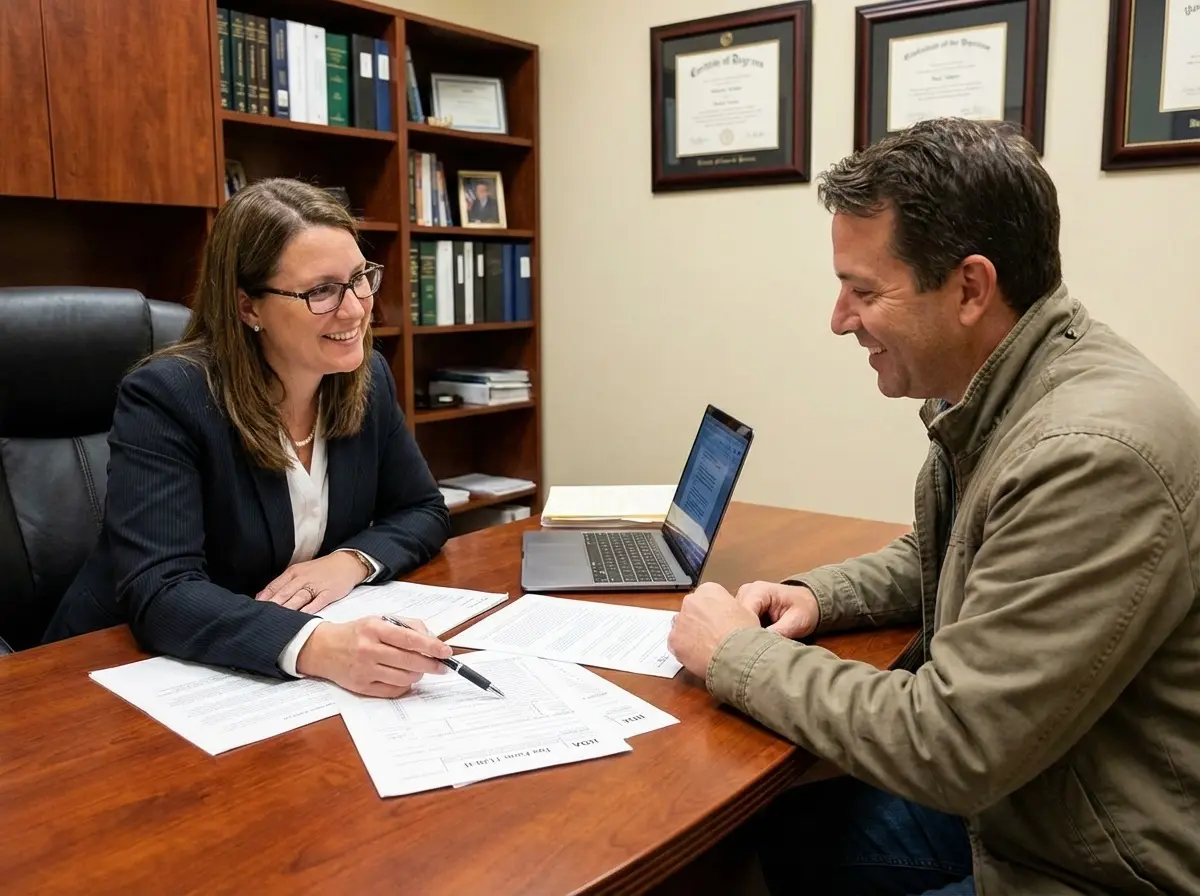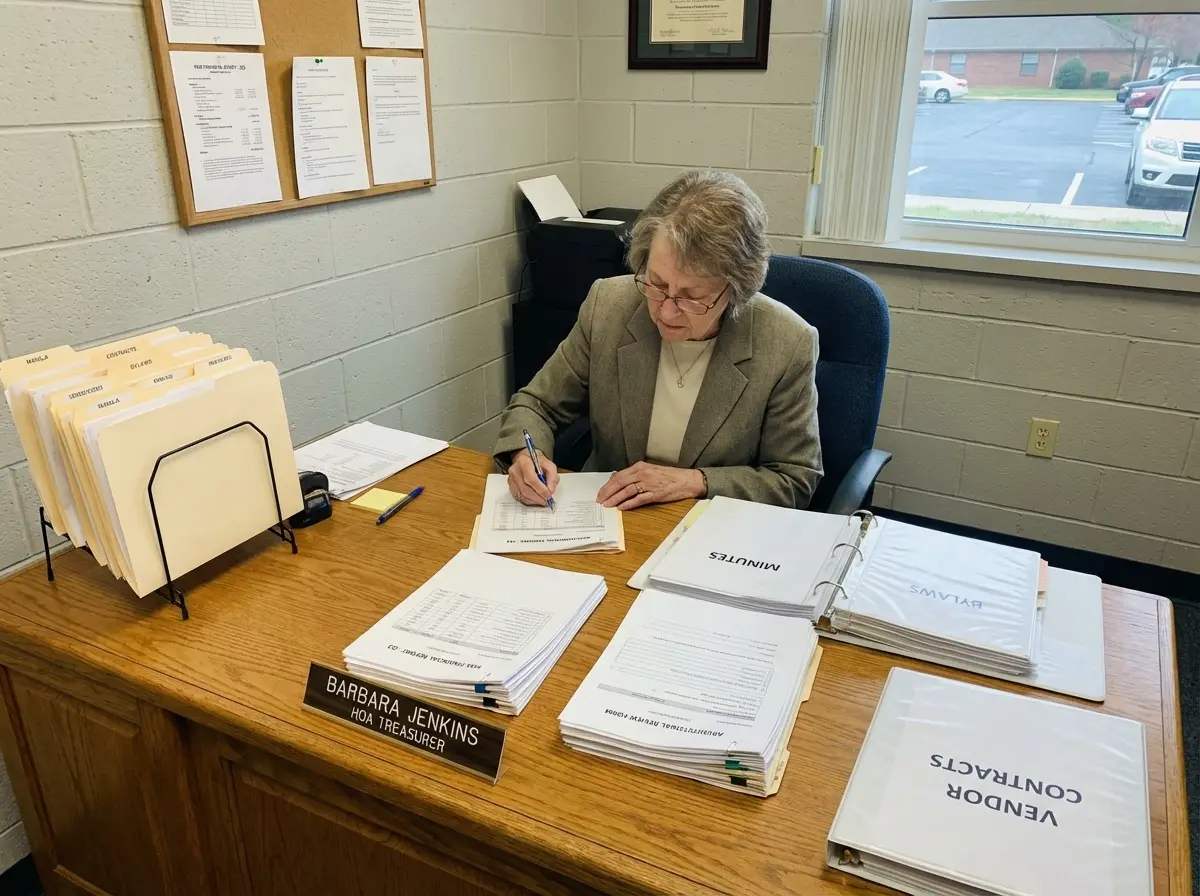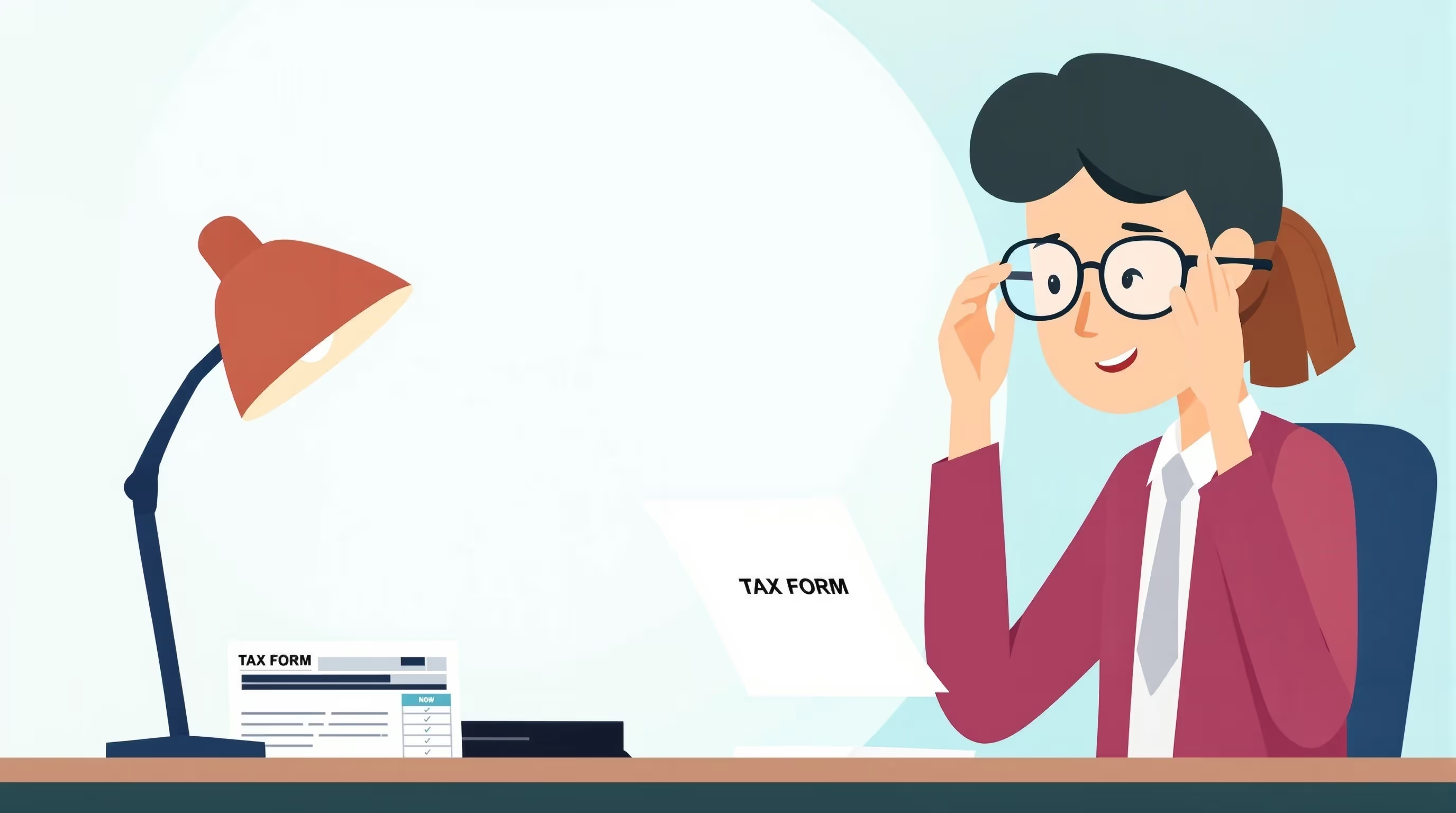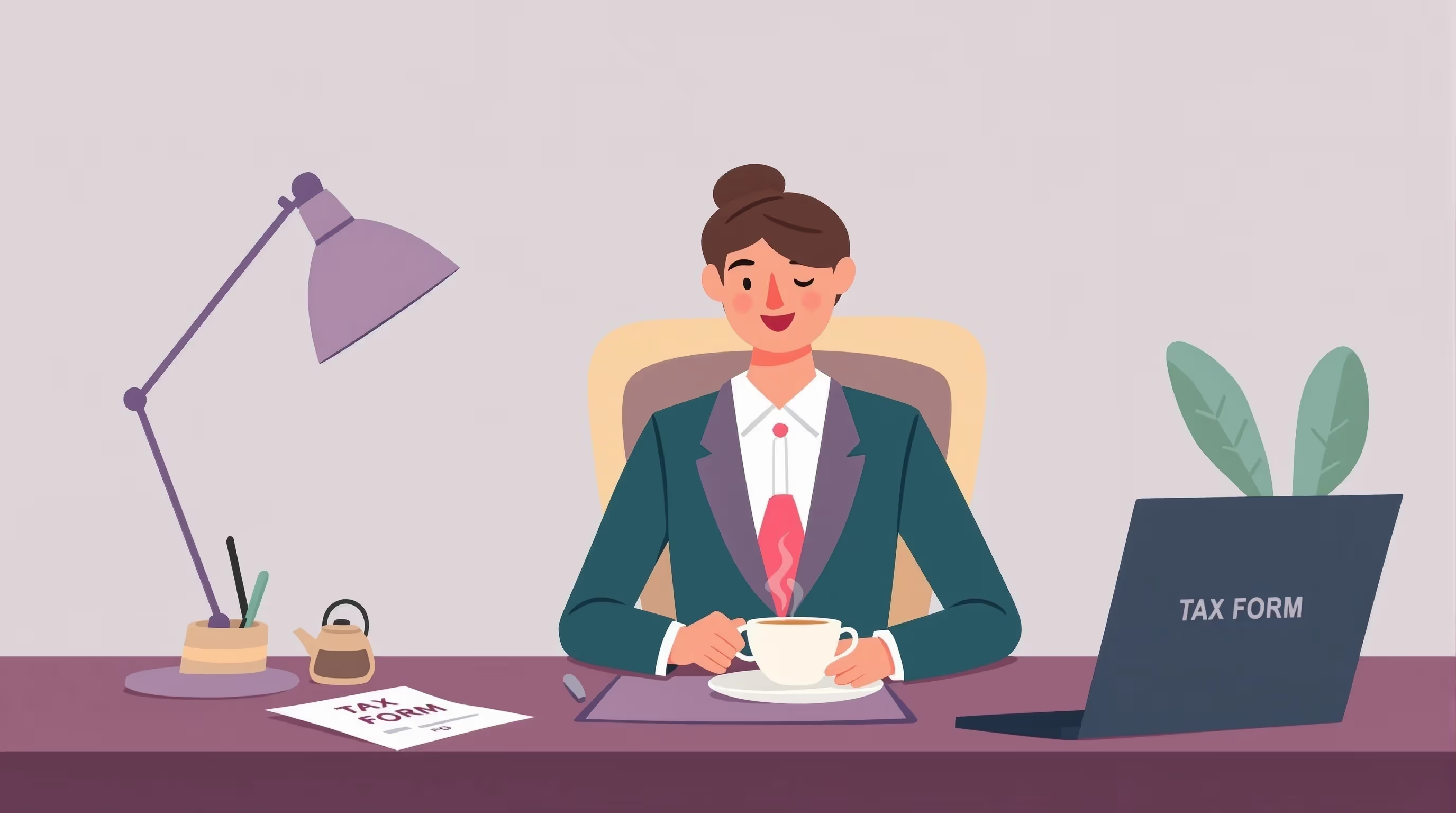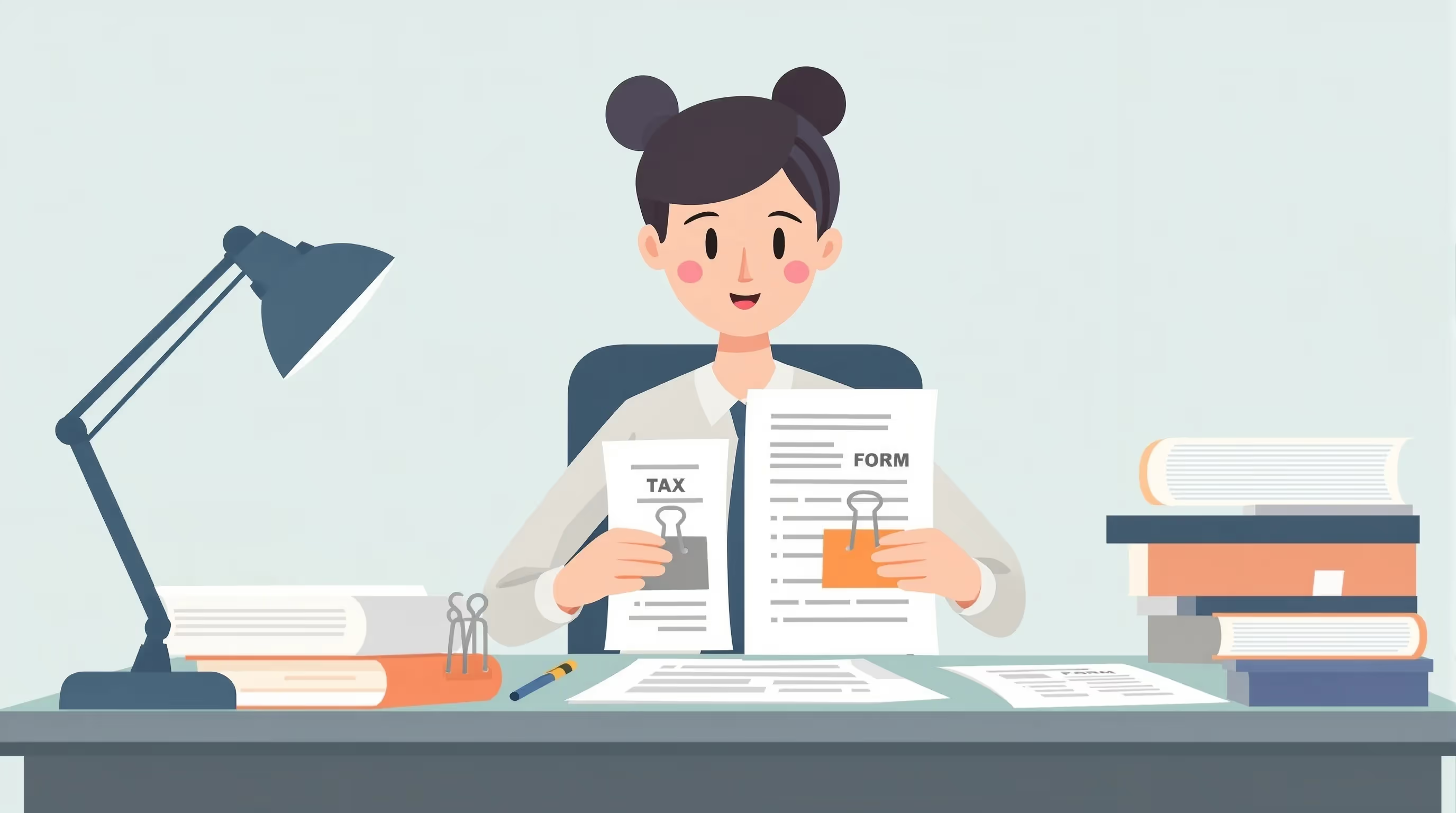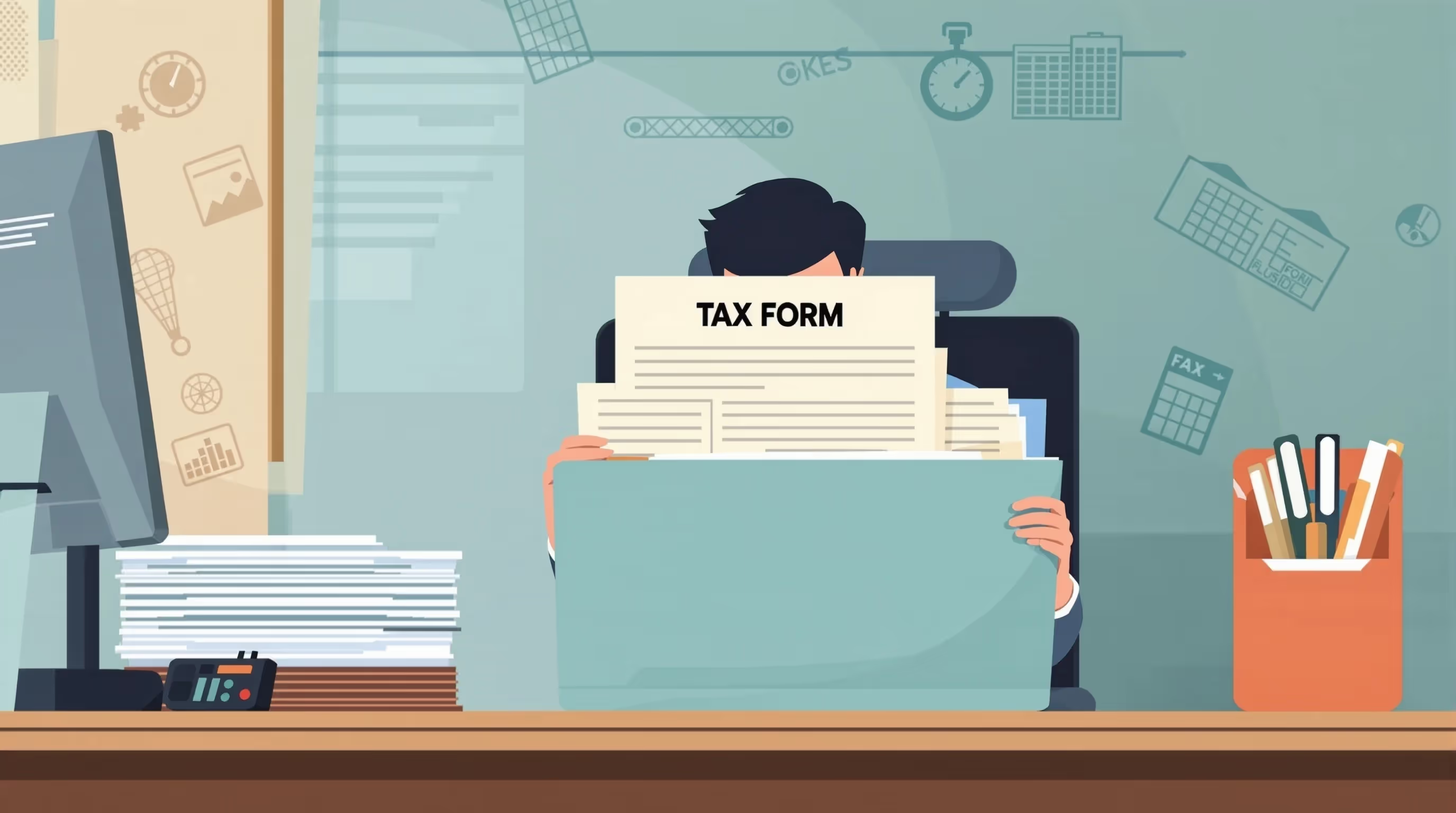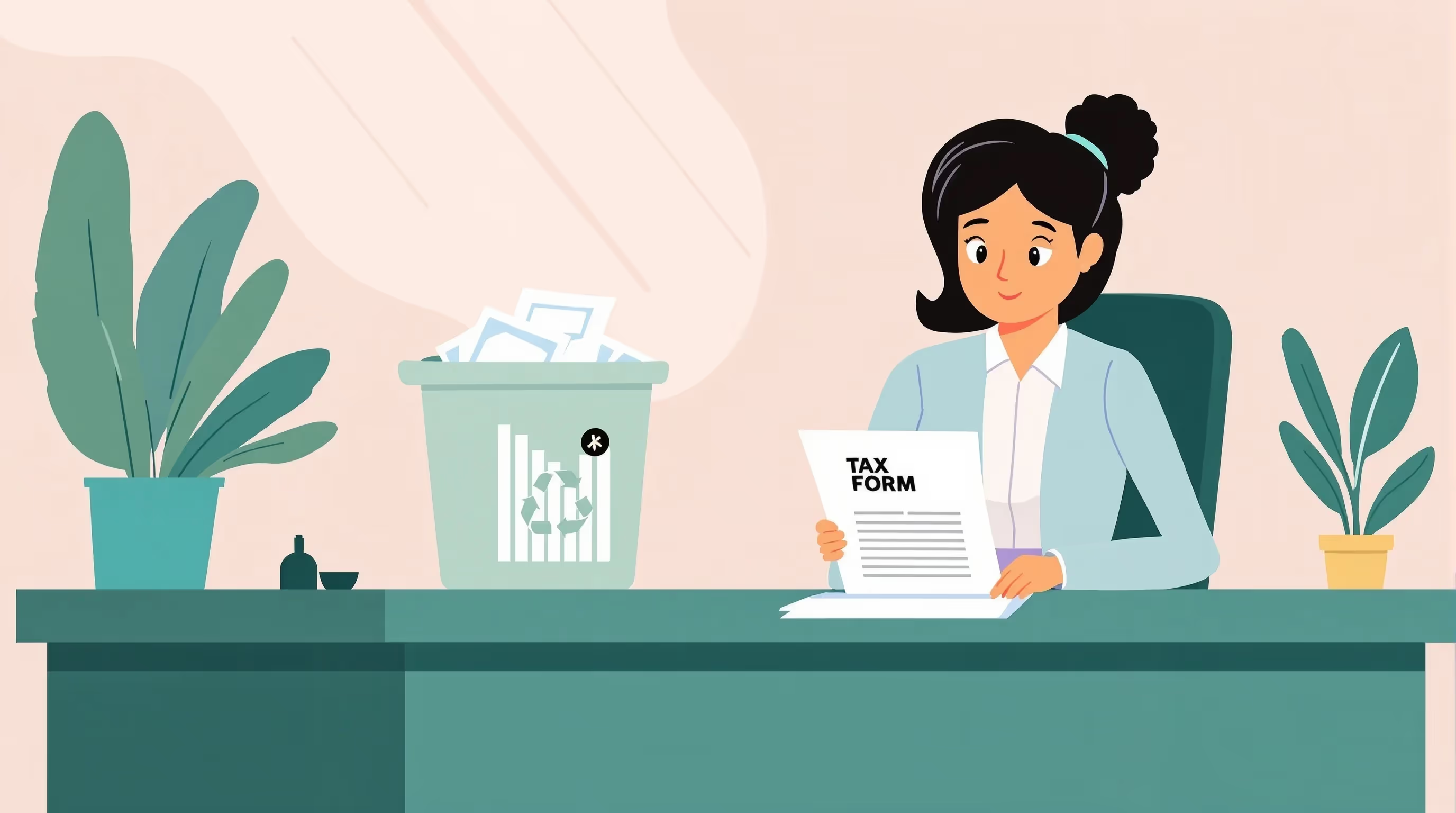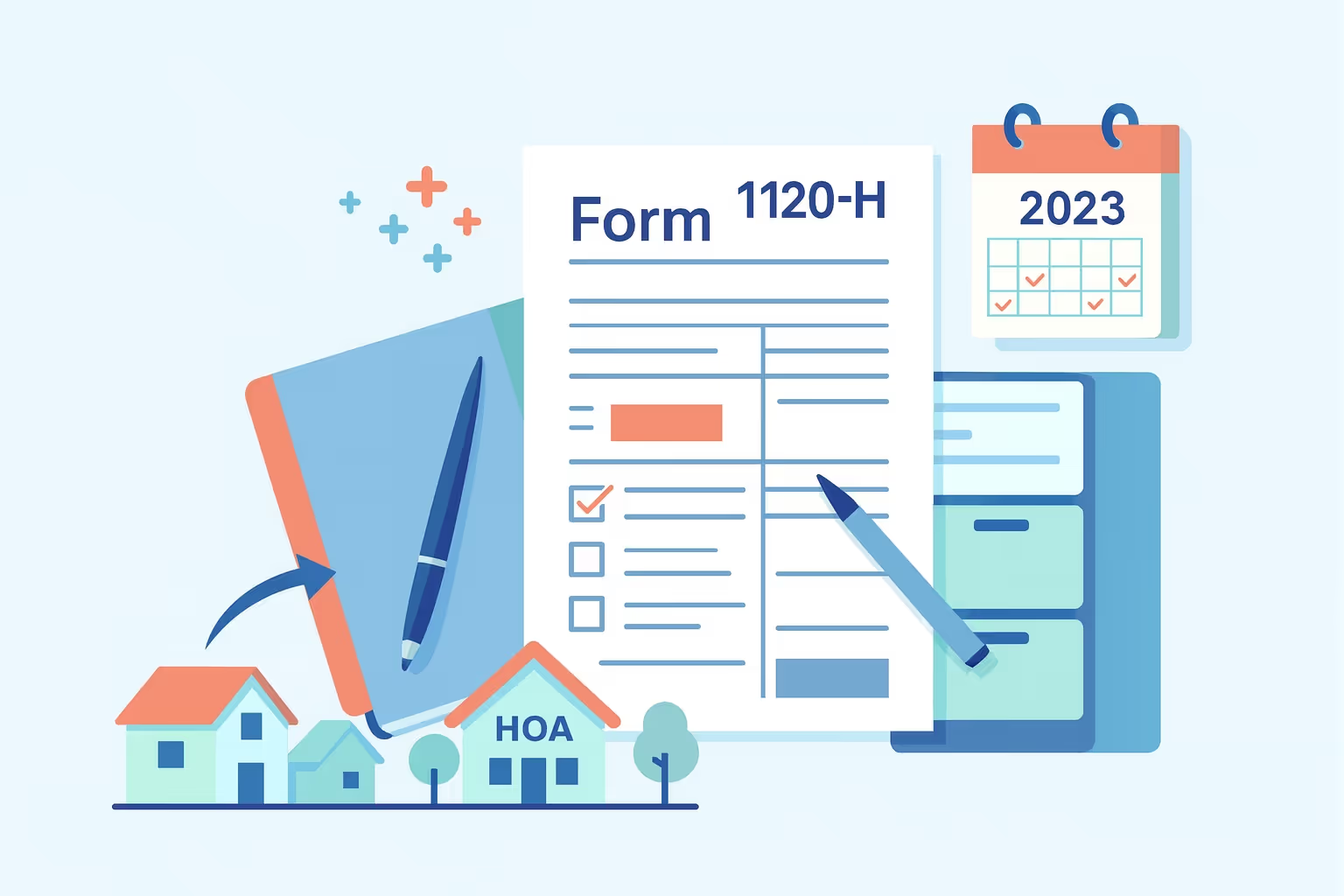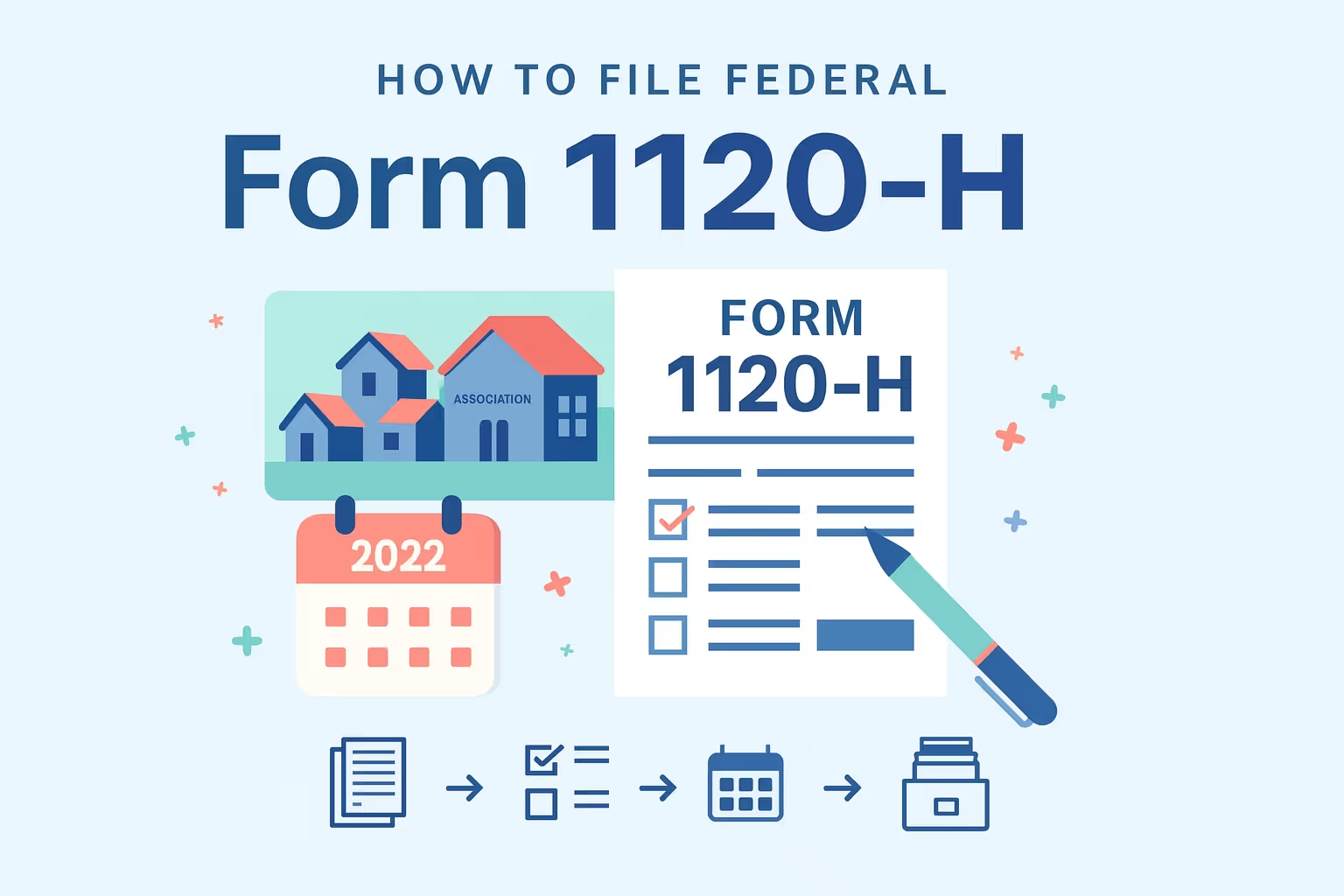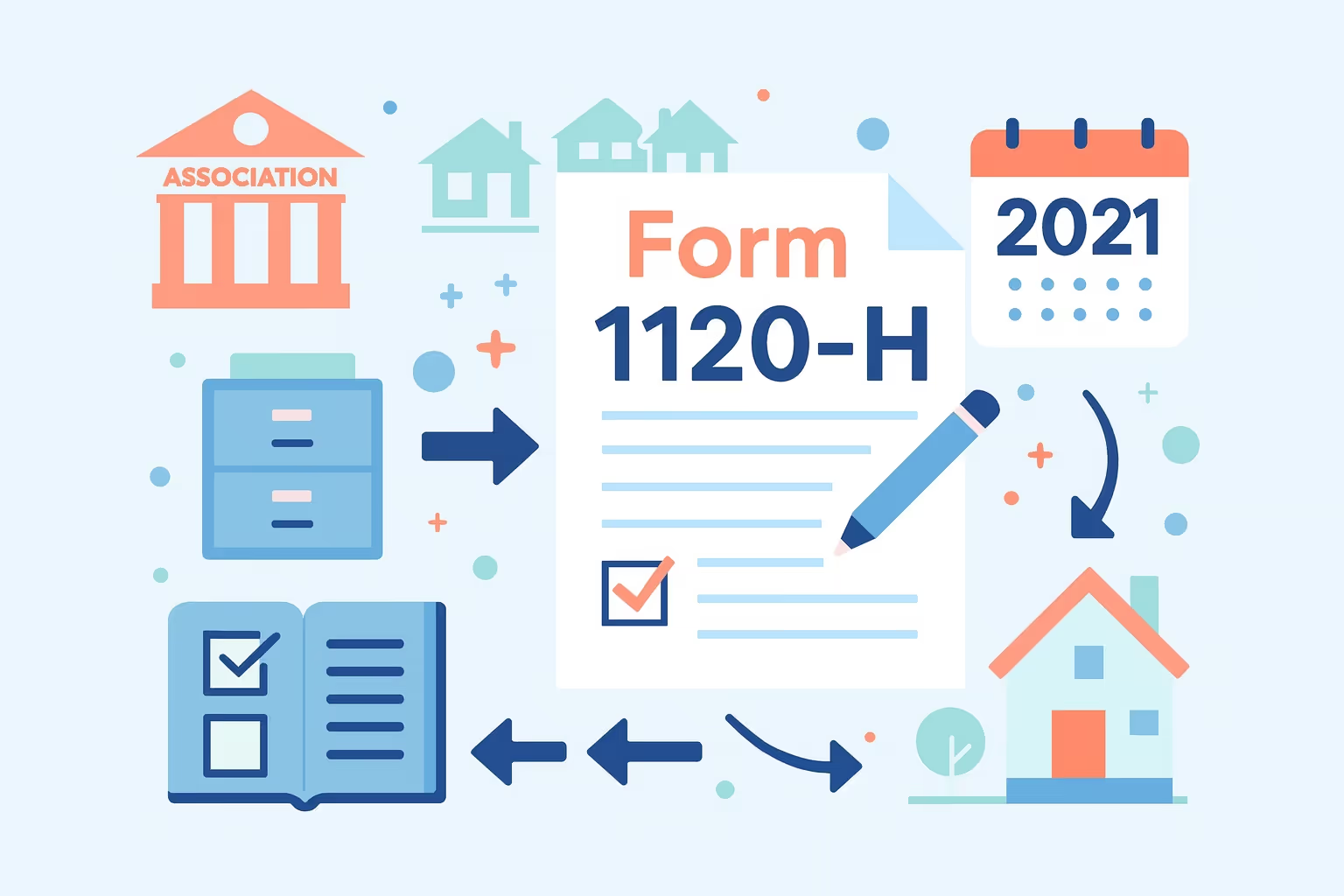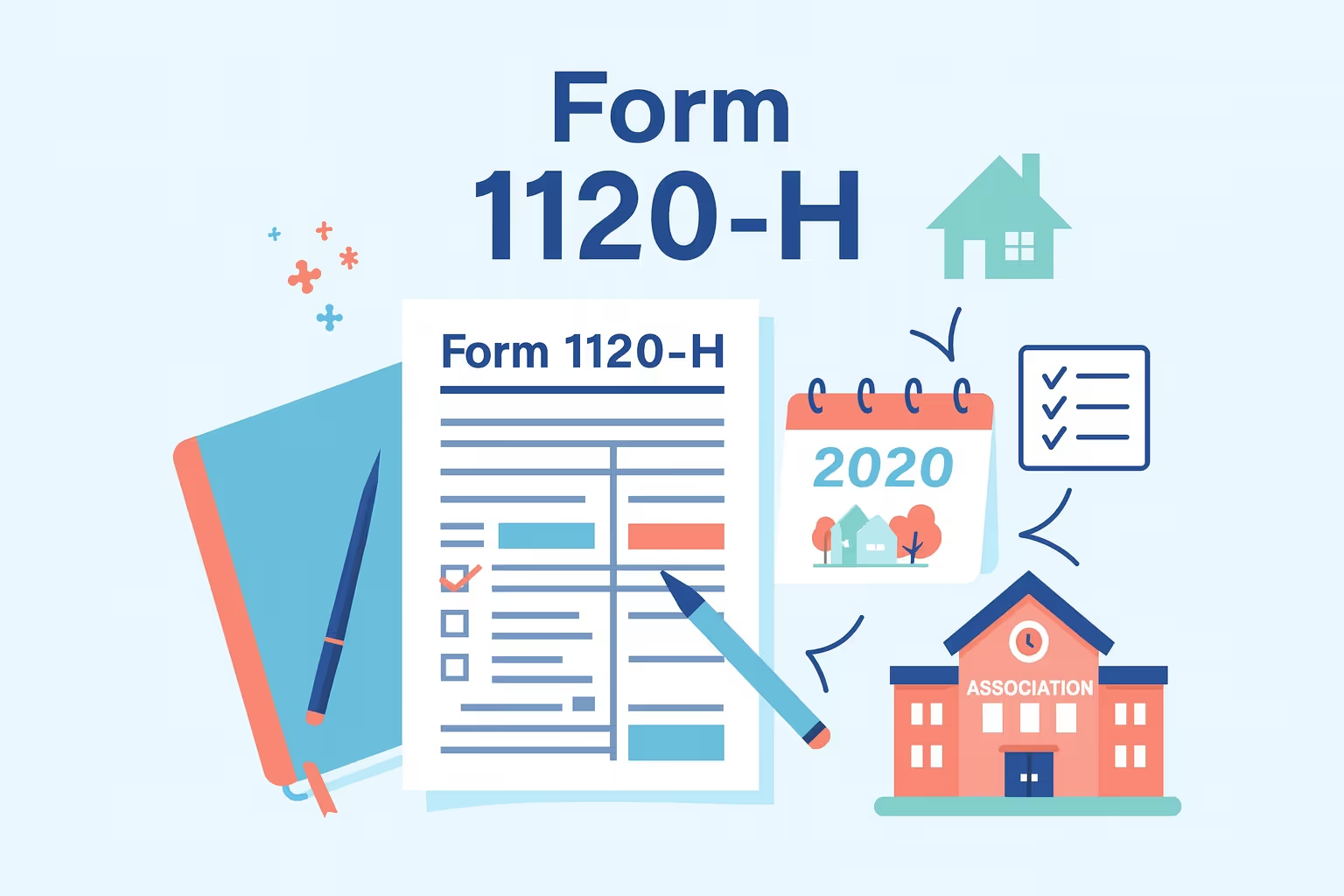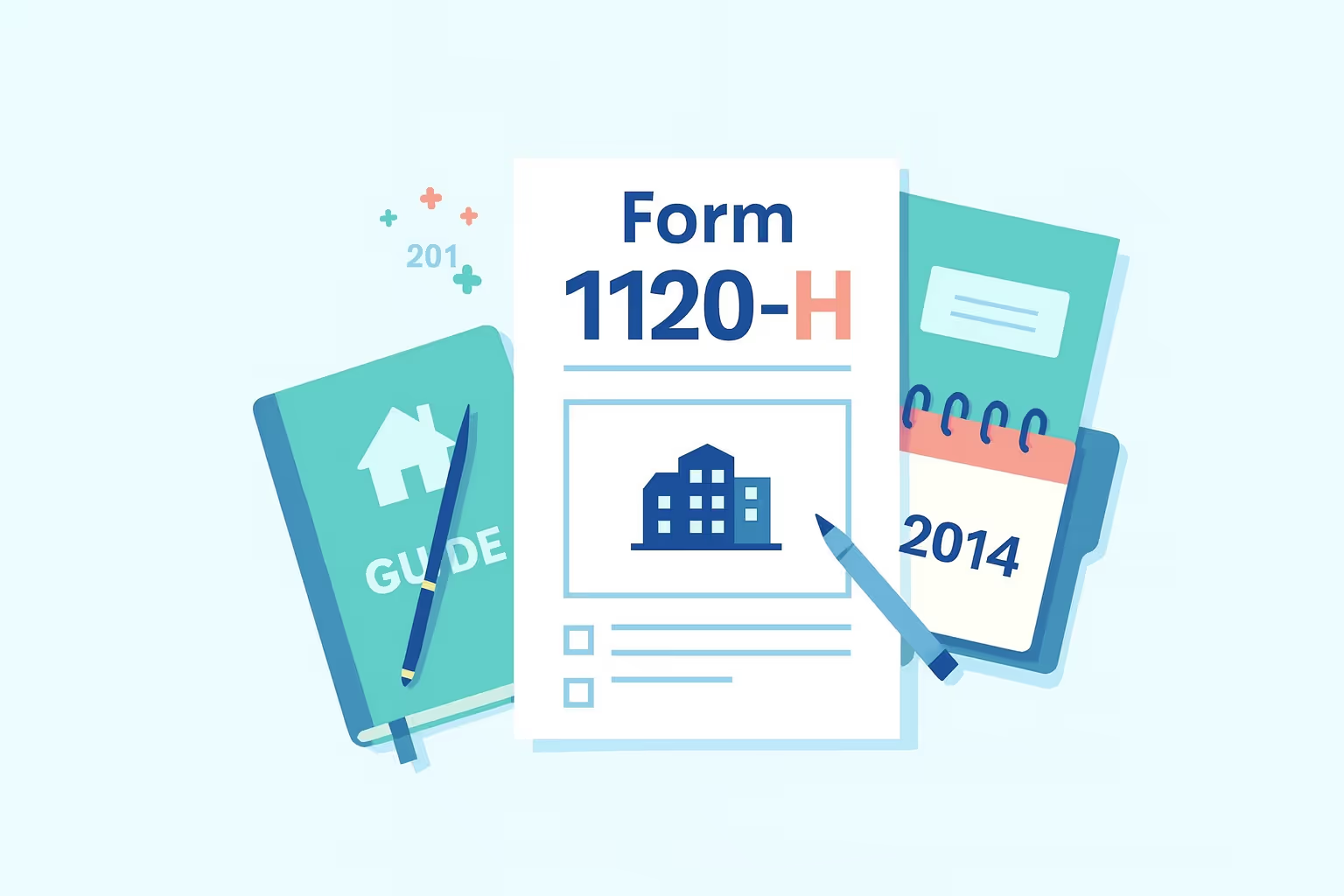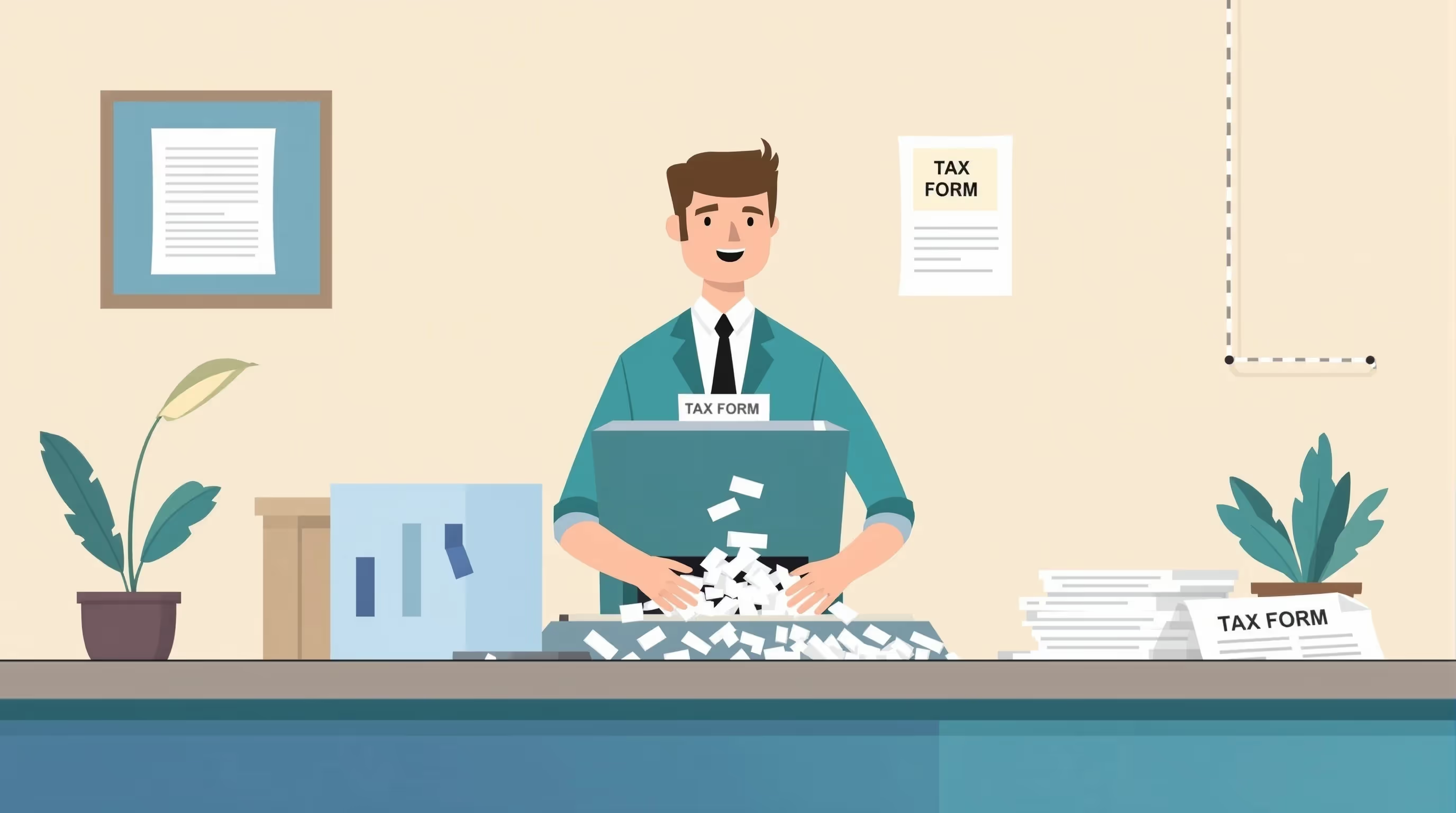
What IRS Form 1120-H (2019) Is For
IRS Form 1120-H (2019) is the income tax return that qualifying homeowners' associations use to claim tax benefits under Internal Revenue Code Section 528. Associations choose this option when they want to exclude exempt function income—such as membership dues, usage fees, and charges tied to association services—from taxable income. Form 1120-H serves as a simpler alternative to a corporation income tax return, applying a predictable flat tax rate.
Exempt function income consists of payments from owners of condominium housing units or timeshare ownership interests for maintaining association property. When an HOA meets the IRS requirements for tax-exempt treatment, it may file Form 1120-H and pay tax only on taxable income, rather than total gross income, which helps maintain the association’s financial health and overall tax responsibilities.
When You’d Use Form 1120-H for 2019 (Late or Amended Filing)
A homeowners association may need to file Form 1120-H for the 2019 tax year if it missed the original filing deadline or received Internal Revenue Service notices showing unresolved tax issues. Many associations later discover errors involving the association’s gross income, non-exempt function income, or property taxes assessed during the year. Late filings also occur when estimated tax payments were overlooked or tax payments were misapplied to the wrong tax year.
Amended tax returns may be required when an association realizes it incorrectly categorized exempt income, reported excess income without proper allocation, or miscalculated taxable income. Filing accurate federal tax returns maintains tax-exempt status when applicable and prevents future complications.
Key Rules Specific to 2019
To qualify for IRS Form 1120-H (2019), the association must pass two IRS tests:
- 60% income test: At least 60% of the association’s gross income must be exempt function income.
- 90% expenditure test: At least 90% of the association’s expenditures must be the association’s expenses for managing and maintaining association property.
Additional rules include:
- Flat tax rate: The rate is 30% for most homeowners' associations and 32% for those with timeshare ownership interests.
- $100 specific deduction: This deduction applies against non-exempt function income.
- Annual election requirement: The association must elect to file Form 1120-H each year by the original tax return deadline.
- Use of Form 1120 if tests are not met: Associations that fail either test must file Form 1120 instead and calculate income taxes under standard corporate rules.
Browse more tax form instructions and filing guides in our Forms Hub.
Step-by-Step (High Level)
- Gather IRS transcripts: Obtain transcripts using Form 4506-T to verify federal tax returns, tax payments, and the association’s income for the 2019 tax year.
- Prepare the correct version of Form 1120-H: Complete the official 2019 form with accurate reporting of exempt income, non-exempt income, and taxable income.
- Attach additional tax forms as required: Include forms such as Form 8949 if capital gains or investment activity must be reported.
- Mail the return to the IRS: Send the HOA tax return to the correct IRS service center, as e-filing was unavailable for the 2019 tax form.
- Retain all supporting documents: Keep copies of the HOA tax return, tax forms, direct expenses, association fees, and proof of mailing for future reference.
Learn more about federal tax filing through our IRS Form Help Center.
Common Mistakes and How to Avoid Them
- Failing the 60% income test: Ensure that exempt function income is correctly calculated using membership dues, assessments, and charges tied to association services.
- Failing the 90% expenditure test: Track the association’s expenditures accurately and separate non-exempt expenses from property-related expenses.
- Misclassifying non-member fees as exempt income: Review whether income from usage fees or non-owner payments qualifies as exempt income under Section 528.
- Misapplying the flat tax rate: Apply the flat tax rate only to taxable income rather than gross income to avoid an overstated tax liability.
- Forgetting the $100 deduction: Deduct the $100 allowance against non-exempt function income to ensure the tax calculation is accurate.
- Mailing returns to the wrong service center: Verify the correct IRS address for the association’s state to prevent delays in processing.
- Poor record keeping: Maintain organized records of real estate taxes, property taxes, net operating loss deduction items, and non-exempt income to support the association’s tax return.
- Using Form 1120-H without meeting qualification tests: Confirm that the HOA income, expenses, and association property activities meet Section 528 requirements before filing.
Learn more about how to avoid business tax problems in our guide on How to File and Avoid Penalties.
What Happens After You File
The Internal Revenue Service typically processes Form 1120-H for 2019 within several weeks. Late-filed returns may take longer if tax issues arise involving association taxes, HOA income classification, or whether exempt function income was calculated correctly. If the association owes income taxes and cannot pay the principal immediately, an installment plan may be available.
The IRS may issue follow-up questions if discrepancies appear between the HOA’s gross income, non-exempt income, or the association’s net earnings. Filing accurate tax returns and staying current on tax payments helps avoid prolonged reviews or penalty assessments. If adjustments are proposed, associations have the right to appeal within the allowed timeframe.
FAQs
What is IRS Form 1120-H (2019), and when should a homeowners association use it?
IRS Form 1120-H (2019) is the income tax return designed for homeowners' associations that qualify under Section 528 and want to exclude exempt function income from taxable income. Associations use this form when they prefer the simplified flat tax rate and meet the IRS tests for exemption.
How does exempt function income affect the HOA tax return?
Exempt function income reduces taxable income because it consists of membership dues and charges tied to the operation of association property. When properly classified, this income is excluded from the HOA tax return calculation, lowering the overall tax liability for the association.
Do we use a corporation income tax return or Form 1120-H if the tests are not met?
Associations that fail the IRS qualification tests must file a corporation income tax return using Form 1120. Filing Form 1120-H is not allowed when exempt income and expenditures do not meet Section 528 requirements, and Form 1120 often results in higher taxes.
Are federal tax returns required even if the association had no taxable income?
Yes, federal tax returns are required even when taxable income is minimal. Filing maintains compliance, documents income and expenses, and ensures the HOA meets its annual filing obligations.
When must an HOA file Form 1120-H instead of Form 1120?
Associations should file Form 1120-H when they qualify and want to simplify their annual filing. Those that fail the tests must file Form 1120 and calculate income taxes under corporate rules.



